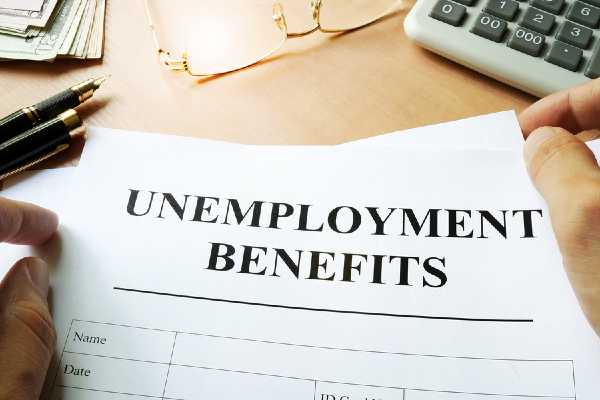COVID-19 has brought great uncertainty to people all across America, particularly those who have lost their jobs or income and are now eligible for unemployment benefits.
With so many U.S. businesses shutting their doors, and millions of Americans forced out of work due to the coronavirus outbreak, Congress passed The CARES Act to provide financial relief for various groups of individuals, including those seeking unemployment insurance.
Here, at AskTheMoneyCoach, we want to help answer the most pertinent questions you have about the economic impact of this public health crisis and about the provisions in the CARES Act, especially concerning unemployment claims.
So, here are the Frequently Asked Questions (FAQs) that many of you may have about the unemployment insurance rules contained in the CARES Act, along with the answers.
What are the primary benefits regarding unemployment insurance in the CARES Act?
In the simplest of terms, the CARES Act expands unemployment benefits in three main ways:
- It increases the length of time people can receive unemployment funds by 13 weeks (up to a maximum total of 39 weeks)
- It provides an added unemployment benefit of $600 per week until July 31, 2020. (This $600 amount is federal unemployment insurance, and is paid in addition to the regular weekly unemployment benefit that individuals receive from their state governments).
- It broadens the eligibility rules for unemployment compensation, by making more Americans eligible for unemployment benefits, such as self-employed people, independent contractors, gig economy workers, and those receiving 1099 income
What is FPUC, PUEC, and PUA?
Many acronyms are being used to describe the unemployment benefits and features of the CARES Act. Here is what each one means, and how they relate to the unemployment insurance provisions:
- The FPUC stands for Federal Pandemic Unemployment Compensation, and it ensures that individuals receive $600, along with their standard pay from state governments, between April 21, 2020, and July 31, 2020.
- PUEC refers to the Pandemic Unemployment Emergency Compensation provision in the CARES Act, that allows for an additional 13 weeks of unemployment insurance funding to expand the timeline to a maximum of 39 weeks (through December 31, 2020).
- PUA is the Pandemic Unemployment Assistance provision. This aspect of the program extends unemployment to individuals that would typically not be eligible for assistance (ex: independent contractors, self-employed individuals, clergy, and others.)
Who is Covered Under the PUA Provision?
We have covered eligibility for the PUA provision in detail here.
However, nearly anyone who typically would not receive benefits is eligible.
Coverage extends to independent contractors, gig economy workers, self-employed individuals, those who have a limited work history, and individuals who may have exhausted state benefit resources.
Even clergy members and those who work for religious organizations may be covered.
People who fit into these categories have to either be unemployed, partially employed, or have lost work or income as a result of COVID-19.
How Do I Get Unemployment Benefits?
Funds for unemployment insurance are distributed through your state’s Department of Labor office/branch. You file a claim for unemployment benefits through your state’s DOL website.
Here is a list with each state’s maximum unemployment benefit, along with each state’s unemployment office website and phone number too.
Will I Receive Back Payments of $600 if I Filed for Unemployment Before the CARES Act Was Signed?
No, but if you have filed a claim and are still waiting on unemployment compensation, you will receive retroactive payments either from the date you were eligible, or when your state signed the agreement for these benefits (whichever date came later). This provision also goes for self-employed individuals, gig economy workers, and other employees not typically eligible for unemployment insurance benefits, who are covered under the PUA provision.
Do I Have to Be Seeking Work Actively to Qualify?
This aspect is a part of the provision that states are still discussing with the Federal government. However, currently, states are encouraged to be lenient with this provision and offer flexibility to those who cannot find a new position due to the COVID-19 outbreak.
What Benefit Amounts Can I Receive Under the PUA Provision from The State?
Unemployment insurance varies from state to state. While the average unemployment benefit is about $380 per week, the maximum unemployment benefit ranges from a low of $235 weekly in Mississippi to a high of $795 in Massachusetts.
So those who traditionally qualify for unemployment pay will receive their state weekly benefit — based on their earnings and their state’s unemployment rules — PLUS the $600 per week federal unemployment benefit provided by the CARES Act.
Nontraditional workers that are eligible to receive unemployment benefits can also receive funding from the states. Benefit amounts are calculated based on previous earnings, and the PUA benefits will be equal to 50 percent of the state’s average weekly unemployment insurance payout at a minimum.
State governments are still working with the Federal government to understand the provisions of the CARES Act and to implement them correctly.
If you haven’t already, be sure to apply for unemployment insurance benefits if you need them, as state offices are taking a while to process claims.
Continue to also check out the other eligibility and FAQ articles we have concerning the CARES Act. If you’re trying to create a new personal finance strategy to navigate the coronavirus crisis, we invite you to take a look at our COVID-19 resources on AskTheMoneyCoach.com.








